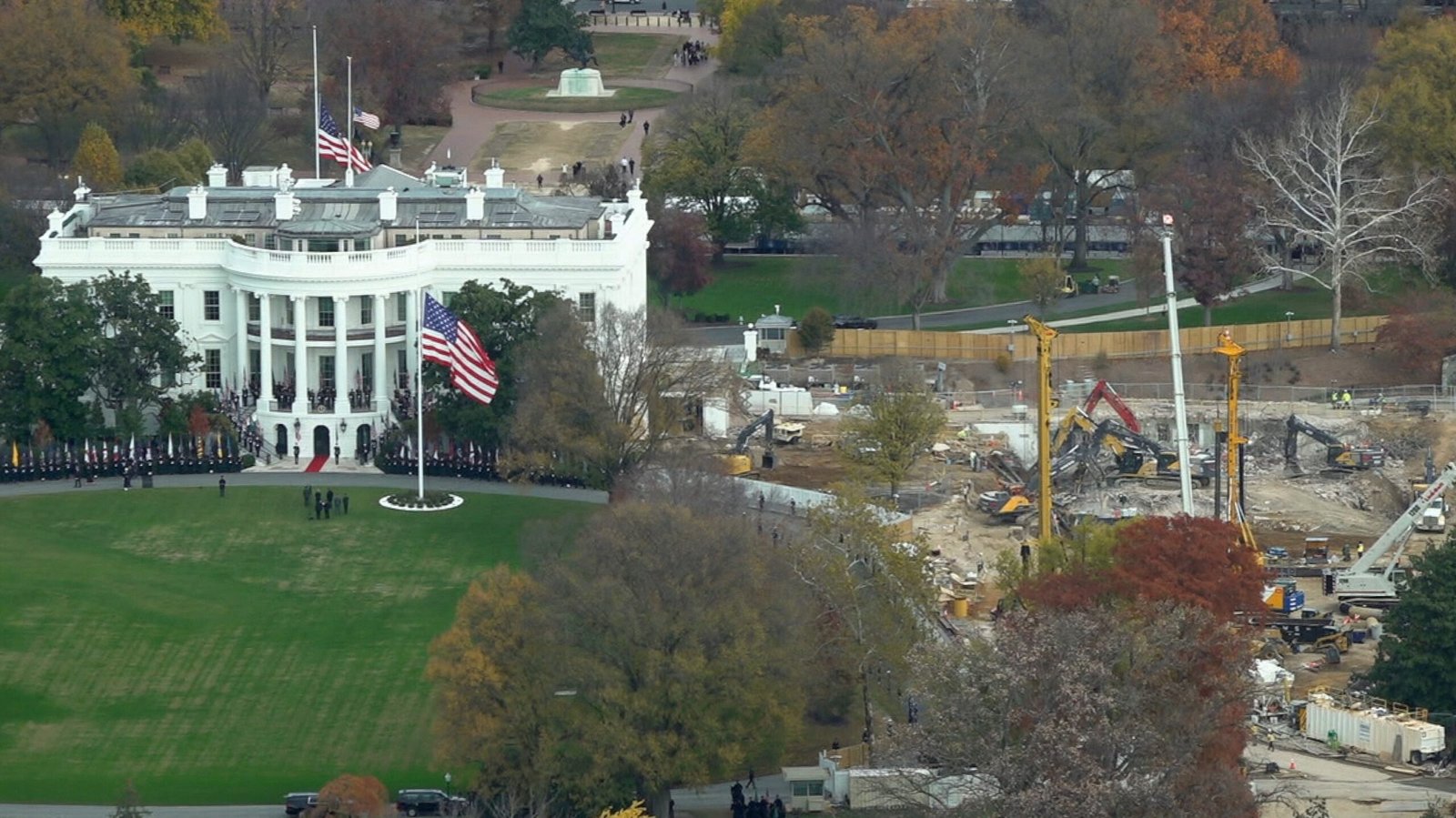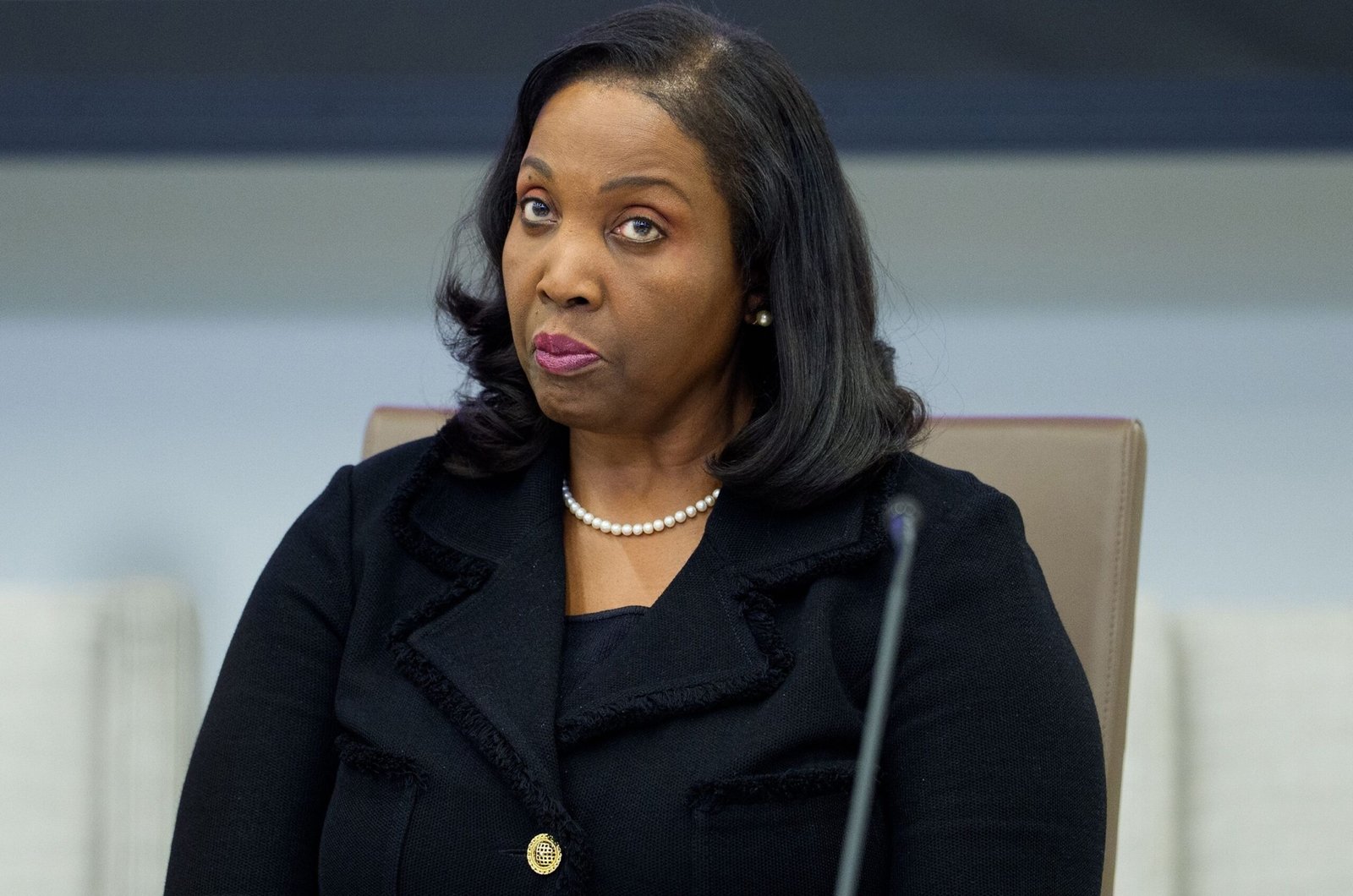It was a high profile debate in the United States Supreme Court on Wednesday with potentially large implications for the furious cultural wars of the United States.
In the end, the judges seemed to reach a rare consensus, to find what Judge Neil Gorsuch called “radical agreement”, in the case of a heterosexual white woman claiming “reverse discrimination” by his employer based on sexual orientation.
The plaintiff, Marlean Ames, had asked the judges to reverse a ruling from the lower court that eliminated his demand for labor discrimination against the Ohio Youth Services Department, where he had worked for more than 15 years.
After just under an hour of oral arguments, it seems that he will get his desire, although he is far from being sure that he will finally gain his case of discrimination.

Marlean Ames is for a portrait in the legal office of Edward Gilbert, his lawyer, in Akron, Ohio, on February 13, 2025.
Megan Jelainger/Reuters, file
Ames alleges that his employer denied him a promotion and then degraded it, in both cases selecting homosexual candidates who were less qualified. His supervisor at that time was also gay.
Title VII of the Civil Rights Law of 1964 prohibits discrimination based on sex and sexual orientation.
The Supreme Court has said that the plaintiffs who present claims under Title VII must, as a first step, show a prima facie case, or an initial set of facts that, if they do not explain, are equivalent to discrimination.
The Court of Appeals of the Sixth Circuit of the United States concluded that AMES did not comply with that bar because, as a heterosexual woman, it did not show the “background circumstances” necessary to show a plausible case of discrimination against it as a member of a majority group.

A vision of the United States Supreme Court in Washington, July 19, 2024.
Kevin Mohatt/Reuters, file
Ames argued that the “substantive circumstances” requirement was an unfair burden of it simply because it is heterosexual. Almost all the judges seemed to agree, even the lawyer of the state of Ohio.
“We agree, Ohio agrees, that it is wrong to treat people differently,” said Ohio Elliot Gaiser’s attorney, Judge Amy Coney Barrett during the interrogation.
Judge Sonia Sotomayor, the main liberal member of the Court, suggested that at least there was “something suspicious” about the situation of AMES that justified a more detailed examination by the lower courts.
“We are in a radical agreement today on that, it seems to me,” Judge Neil Gorsuch joked about the need for the court to reaffirm that Title VII applies to all equally.

The associated judge Neil Gorsuch is found during a group photo of the judges in the Supreme Court of Washington, DC, on April 23, 2021.
ERIN SCHAFF-POOL/GETTY IMAGES, ARCHIVE
Gaiser argued, however, that even if the court annulled the rule of the “background circumstances” of the sixth circuit for white, straight and/or male plaintiffs (that is, the majority group), it must make it clear that the AMES may still not have presented a sufficiently plausible discrimination case to advance.
Judge Brett Kavanaugh suggested that the Court will probably deliver a limited opinion to a lower court based on facts on the accusations of AMES and if they should advance.
Everything that the court must say, Kavanaugh said: “It is a really short opinion that says discrimination based on sexual orientation, either because you are gay or because you are heterosexual, it is prohibited, and the rules are the same in any way as it goes.”
Labor law experts suggested that such ruling could effectively facilitate that the members of the majority groups bring cases of alleged discrimination in the courts.
“At a broader level, the ruling will reinforce the public that the law prohibits discrimination equally against groups of the majority and minorities,” said Jonathan Segal, employment lawyer and partner of Duane Morris LLP, a private company based in Philadelphia. “This will probably increase in all circuits the already growing number of claims by members of the so -called majority groups.”
“Of course, AMES’s decision cannot be seen in isolation,” Segal added. “It will take place at a time when the Dei programs are already under the legal microscope, a finding of ‘reverse discrimination’ can submit the Dei programs of an employer to federal and state investigations.”
At the end of June a decision is expected in the case, the Department of Youth Services of AMES v. Ohio, at the end of June.




